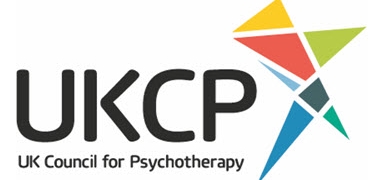How Therapy Can Help New Mums...
/The journey to motherhood is often portrayed as a time of pure joy and excitement. While it can indeed be beautiful, it's also a period of immense change and challenge. Yet, the struggles many women face during pregnancy and early motherhood are shrouded in silence, shame, and stigma. It's time to change this narrative and talk about some of these issues and how therapy can play a vital role in supporting perinatal mental health.
The Hidden Struggles of New Motherhood
Photo by Atharva Whaval (unsplash)
Becoming a mother is a profound transformation. It's not just about welcoming a new life into the world; it's about birthing a new identity for yourself. This metamorphosis, while natural, can be overwhelming. The sleepless nights, the constant demands of a newborn, the physical recovery from childbirth – these alone are challenging. Add to this the pressure to be the "perfect" mother, the comparisons we make with other mothers around us and it's no wonder that many women find themselves struggling.
Yet, these struggles are rarely discussed openly. There's an unspoken expectation that motherhood should come naturally, that women should seamlessly transition into their new role with grace and joy. This expectation creates a breeding ground for shame and isolation when reality doesn't match up to the idealised version of motherhood we've been sold.
The Power of Therapy in Perinatal Mental Health
This is where therapy can be transformative. A skilled therapist can provide a safe, judgement-free space for new and expectant mothers to voice their fears, anxieties, and struggles. Here are a few of the ways therapy can make a difference:
1. You are not alone: Therapy helps women understand that their feelings are valid and normal. It's okay to feel overwhelmed, anxious, or even ambivalent about motherhood at times.
2. Coping Strategies: Therapists can help prepare women using practical tools to manage stress, anxiety, and the demands of new parenthood.
3. Identity Exploration: Therapy provides a space to explore and integrate this new identity of "mother" with existing identities and roles.
4. Relationship Support: The transition to parenthood can strain relationships. Therapy can help navigate these changes and strengthen bonds.
5. Early Intervention: By addressing mental health concerns early, therapy can prevent more severe issues from developing.
Breaking the Stigma
It's crucial to recognise that seeking help is not a sign of weakness or failure. In fact, it's an act of strength and love – for yourself and for your child. Perinatal mental health issues, including postpartum depression and anxiety are common and treatable. By speaking openly about these challenges and the benefits of therapy, we can start to dismantle the stigma surrounding perinatal mental health.
If you're struggling during pregnancy or early motherhood, know that you're not alone, and that support is available. Therapy can be a powerful ally in your journey to motherhood, helping you not just survive but thrive in your new role.
Every mother deserves support, understanding, and the opportunity to flourish in her new role.
The Compassion Focused Therapy approach for new mothers aims to help women develop a kinder, more nurturing relationship with themselves, which in turn can positively impact their relationship with their baby and overall well-being.
Photo by Anastasiia Chepinska on Unsplash
What is Compassion Focused Therapy (CFT)? And how is it used for mothers suffering from postnatal depression?
1. Compassion Focused Therapy for postnatal depression focuses on developing self-compassion and reducing self-criticism in new mothers.
2. It aims to help mothers understand and manage difficult emotions that can arise after childbirth.
3. The therapy often involves exercises to activate the "soothing system" of the brain, which can help counteract stress and anxiety.
4. CFT typically includes mindfulness practices and guided imagery to help mothers cultivate a more compassionate inner voice.
5. It addresses the unique challenges of motherhood, including societal expectations and the significant life changes that come with having a baby.
6. The therapy often explores how a mother's own childhood experiences might influence her current feelings and behaviours.
7. CFT for postnatal depression usually involves teaching skills to regulate emotions and cope with difficult thoughts.
8. It may also include elements of working on the mother-infant relationship and attachment.
This article was written by Tara Kaikini, a therapist with the Palmeira Practice.
If you are affected by any of these issues and would like to seek therapy with Tara Kaikini, contact the Palmeira Practice to make an initial appointment.






